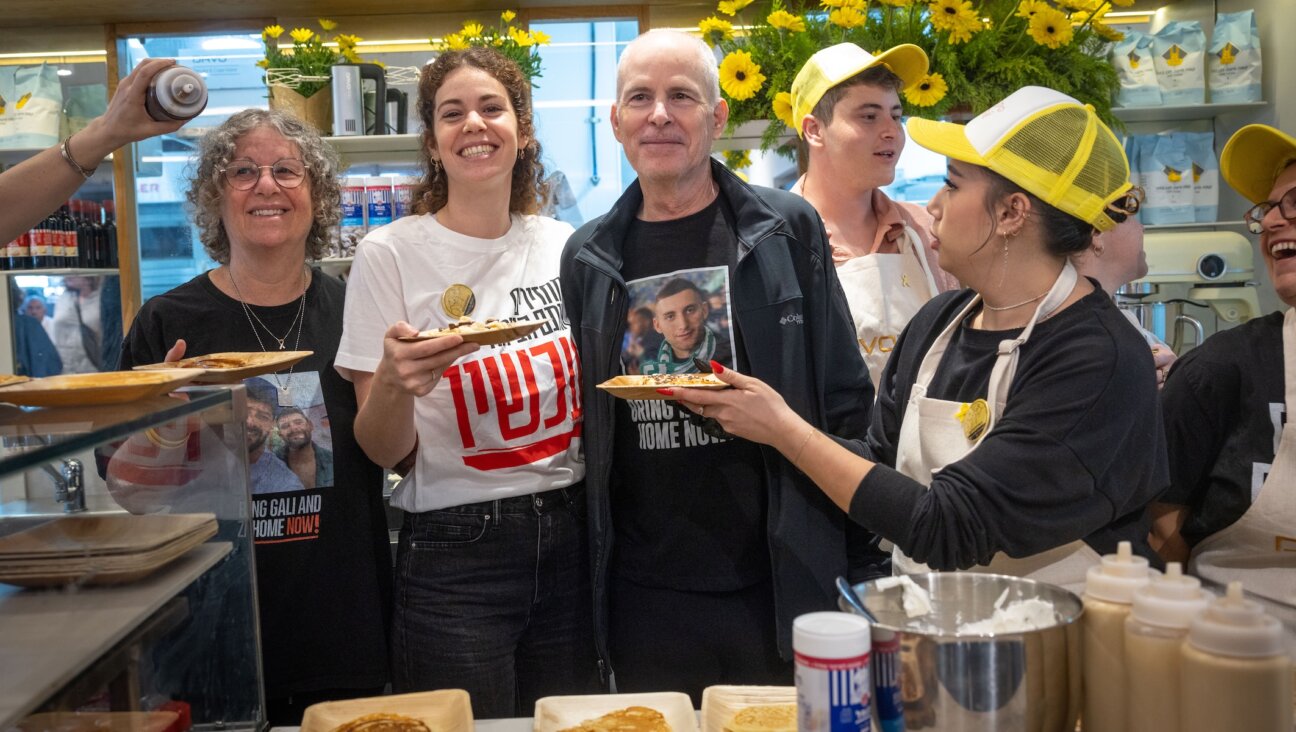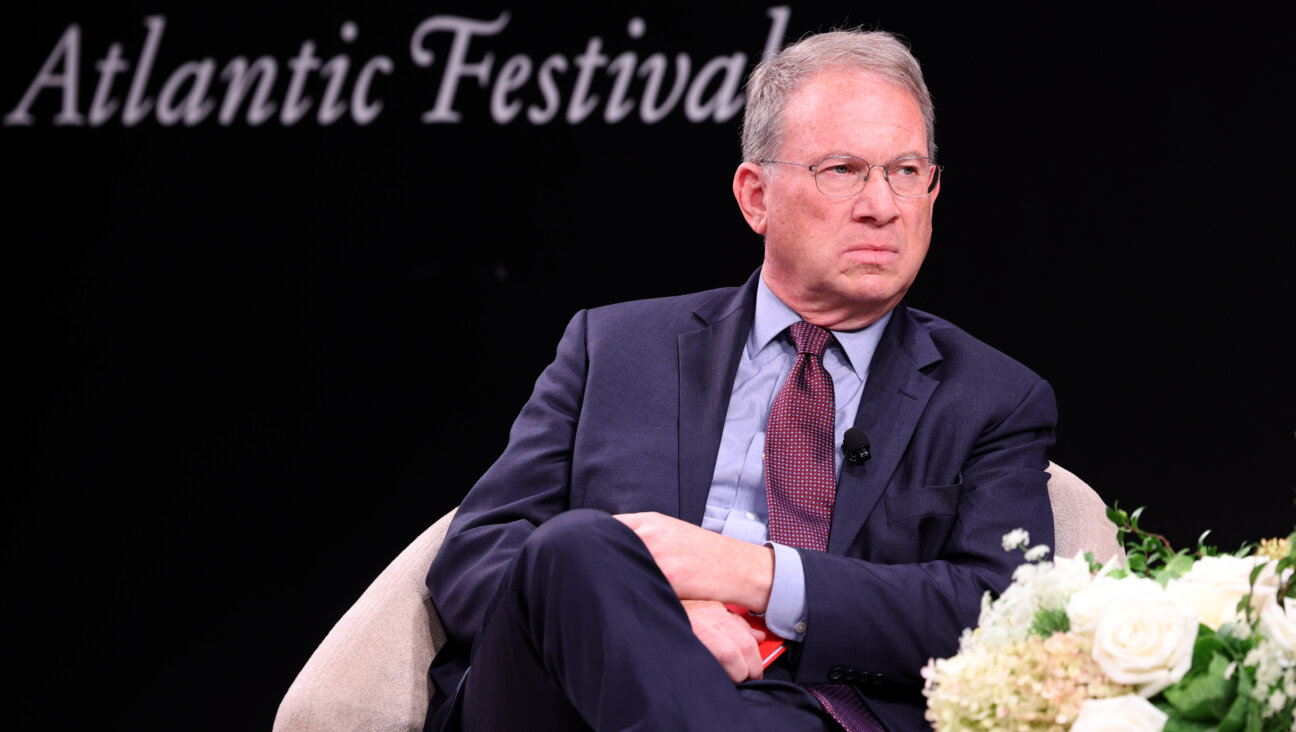Charity Hits Back in Feud Over Arab Aid
The head of the largest Jewish charitable federation in the country is taking right-wing groups to task for arguing that philanthropic dollars raised for Israel during the recent war with Hezbollah should not have been used to aid Arab citizens of the Jewish state.
Controversy surrounding the issue erupted in recent weeks when the hawkish group, Americans for a Safe Israel, claimed in a widely distributed press release that one-third of emergency campaign funds collected by the federation system’s central charity, United Jewish Communities, were earmarked for Arabs. UJC, the national arm of the federations, has staunchly refuted the one-third figure, putting the percentage of relief funds allocated to non-Jews at a mere 3%.
Irrespective of the exact numbers, the executive vice president and CEO of the UJA-Federation of New York, John Ruskay, penned a stinging rebuke to UJC’s critics, unapologetically stating that support for Israel cannot be limited to Jews.
“This democracy counts Arabs, Druze, and Christians among its citizens, some of whom serve in the Israeli Defense Forces and, yes, have even died to protect Israel,” Ruskay wrote in an e-mail message sent to a wide swath of volunteer and professional leaders of Jewish organizations. “Supporting Israel also means supporting a state that affords its minority populations the freedoms and opportunities that were for centuries denied us.”
The flare-up between the federation system on the one hand and right-wing and Orthodox Jewish organizations on the other picked up steam when The New York Jewish Week, a newspaper that the New York federation distributes to its donors, published a front-page October 13 article airing the complaints of Helen Freedman, the former director of AFSI. When asked by The Jewish Week about Freedman’s concerns, leaders of the Zionist Organization of America, the Orthodox Union and the National Council of Young Israel all reportedly objected to the distribution of UJC emergency funds to Israeli Arabs.
At issue is how and where American Jewish charitable dollars should be spent in the Jewish state as it begins the arduous process of rebuilding northern Israel in the wake of the war in Lebanon. While nearly a third of the more than $330 million raised to date by UJC has already been disbursed, more than $100 million remains to be distributed on the ground in Israel. Those funds will be used to finance a broad range of revitalization efforts, including providing loans to small businesses, offering trauma counseling and repairing the schools and houses destroyed by Hezbollah rockets during the month-long conflict.
As war raged this summer in the north of Israel — where Arabs represent a large share of the population, including about half the residents of the Galilee — relief efforts organized by the Jewish Agency for Israel and heavily funded by an influx of cash from UJC, included the evacuation of local children to summer camps in the south. In the case of the camps, the Jewish Agency did not discriminate against non-Jewish children, and in many instances, brought Muslim, Christian and Druze kids to safety along with their Jewish counterparts.
Ruskay cited the camps to drive home his point, when he asked in his strongly-worded statement: “When the rockets started falling in Haifa, a city as renowned for its magnificent landscapes as for the harmony in which Arabs and Jews have lived side by side for generations, could we — as Jews — have evacuated the Jewish children to the safety of summer camps in the south and left the Arab children to cower in the night?”
A spokesman for the Jewish Agency defended his organization’s non-discriminatory practices, saying that it was the agency’s policy to care for all of Israel’s citizens, regardless of their ethnicity, both during the war and throughout the process of rebuilding. “The Jewish Agency is very proud of the fact that it gives money to all of Israel’s citizens,” the spokesman said.
AFSI’s Freedman is not backing down from her assertion that Jewish charity dollars should only go to Jews.
“Israel may be a democracy, so the government has to do what governments do, which is take care of all their citizens, but the UJC is not the government,” Freedman said in an interview. “It’s a private organization of philanthropic groups, so they don’t have any obligation to be ‘democratic.’”
Freedman’s comments come at a time when both Israeli government officials and Jewish philanthropic leaders have raised an outcry, saying that the Israeli government did an abysmal job of coordinating relief efforts in the north, leaving it to nonprofit organizations and charities to do the job of the state. Critics contend that the lines between the role of the government and the role of philanthropies have become dangerously blurred.
Freedman also disputed UJC’s assertion that only 3% of their emergency funds went to non-Jews, saying that the umbrella organization had manipulated the numbers. She claimed that most Israeli Arabs showed disloyalty to Israel during the war and should therefore be denied assistance.
A leading figure on the Israeli right, Moshe Arens, a former defense minister, said that in principle, using Jewish money to aid Arab communities was acceptable, but he argued that funds could easily end up in the hands of Arabs who are disloyal to the state if the divvying of dollars is not properly supervised. Arens noted that some of the mayors of Israeli-Arab villages are members of the Islamic Movement, which he described as a “subversive organization.”
While northern cities such as Haifa have long been hailed as models of peaceful coexistence between Jews and Arabs, relations between the two groups were subject to increasing strain during the recent conflict. In one prominent example, the Arab deputy mayor of Haifa, Walid Hamis, was ousted from his post after he vociferously protested the Jewish state’s heavy military response to the Hezbollah kidnapping of two Israeli soldiers, calling the ensuing war “Israeli aggression.”
At least one major donor to Jewish charitable causes, Gary Erlbaum, who chairs the Israel Emergency Campaign of the Jewish Federation of Greater Philadelphia, said that he had no problem with “a certain percentage” of funds needed for repair work in the north winding up paying for repairs in Arab villages.
“This is very different from conveying money to the Palestinian Authority or Palestinian government,” he said.
In an interview with the Forward, Stephen Savitsky, president of the Orthodox Union, which folded its own emergency campaign into UJC’s, seemed to back away from previous statements he had made to The Jewish Week. Savitsky was quoted by The Jewish Week as saying that he planned to ask UJC to “segment the money” raised by the O.U. “to make sure it goes to the places we want.” When asked if he still planned to do that, Savitsky said only that he was comfortable with the 3% figure that Howard Rieger, UJC’s president and CEO, had offered as a corrective to Freedman’s contention that one third of funds were going to Arabs. Savitsky said that giving some small portion of the funds to Israeli Arabs was not in itself problematic.
“If someone gives money to the Rambam Hospital in Haifa,” he said, “it’s understood that it also services Arabs, and I don’t think anyone would have a problem with that.”
The Forward is free to read, but it isn’t free to produce

I hope you appreciated this article. Before you go, I’d like to ask you to please support the Forward.
At a time when other newsrooms are closing or cutting back, the Forward has removed its paywall and invested additional resources to report on the ground from Israel and around the U.S. on the impact of the war, rising antisemitism and polarized discourse.
Readers like you make it all possible. We’ve started our Passover Fundraising Drive, and we need 1,800 readers like you to step up to support the Forward by April 21. Members of the Forward board are even matching the first 1,000 gifts, up to $70,000.
This is a great time to support independent Jewish journalism, because every dollar goes twice as far.
— Rachel Fishman Feddersen, Publisher and CEO
2X match on all Passover gifts!
Most Popular
- 1

Film & TV What Gal Gadot has said about the Israeli-Palestinian conflict
- 2

News A Jewish Republican and Muslim Democrat are suddenly in a tight race for a special seat in Congress
- 3

Fast Forward The NCAA men’s Final Four has 3 Jewish coaches
- 4

Culture How two Jewish names — Kohen and Mira — are dividing red and blue states
In Case You Missed It
-
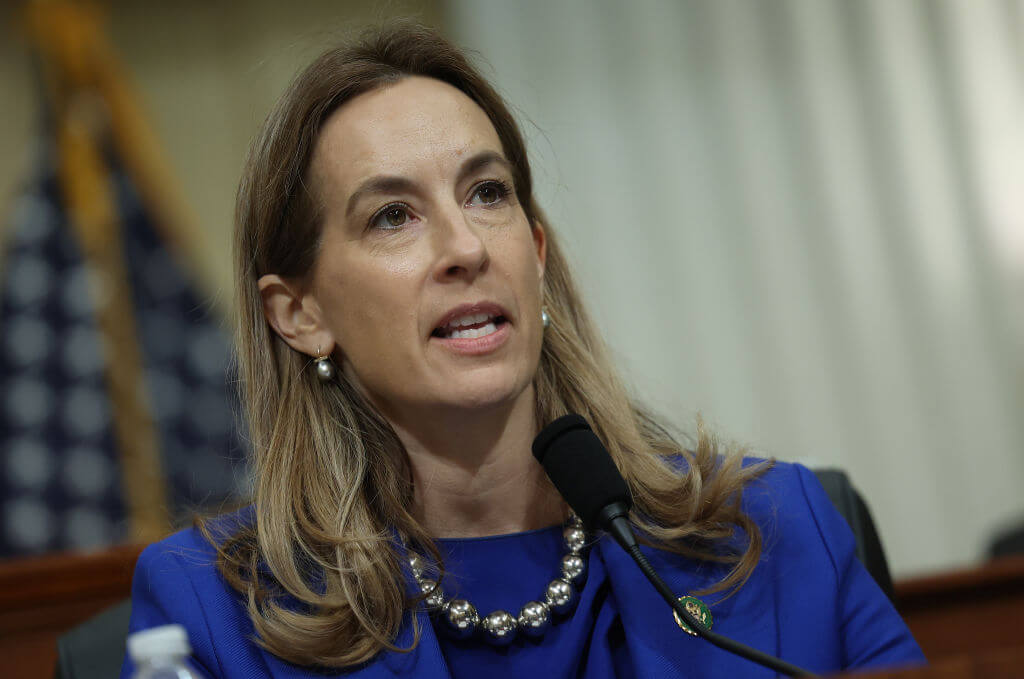
Fast Forward Secretive GOP firm distorts Democratic candidate’s views on Israel in NJ governor race
-
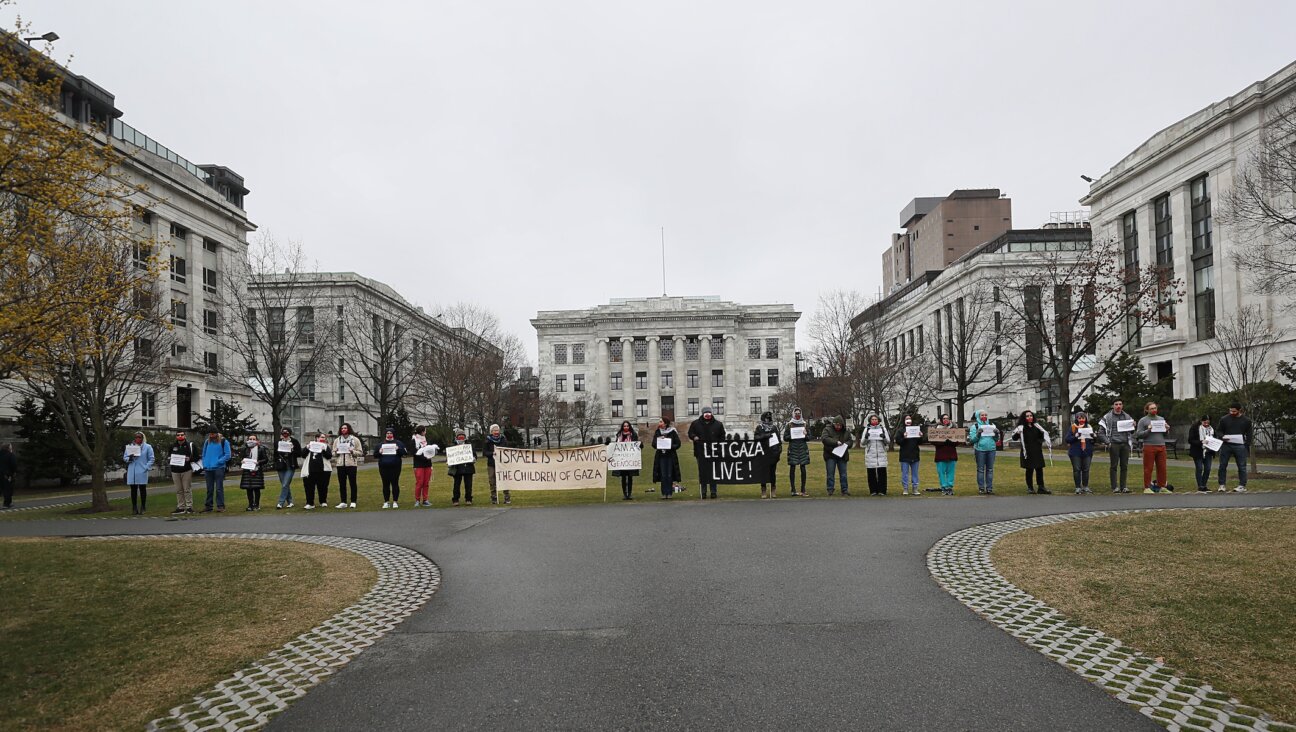
Fast Forward Trump administration to review nearly $9 billion in Harvard funding over campus antisemitism
-
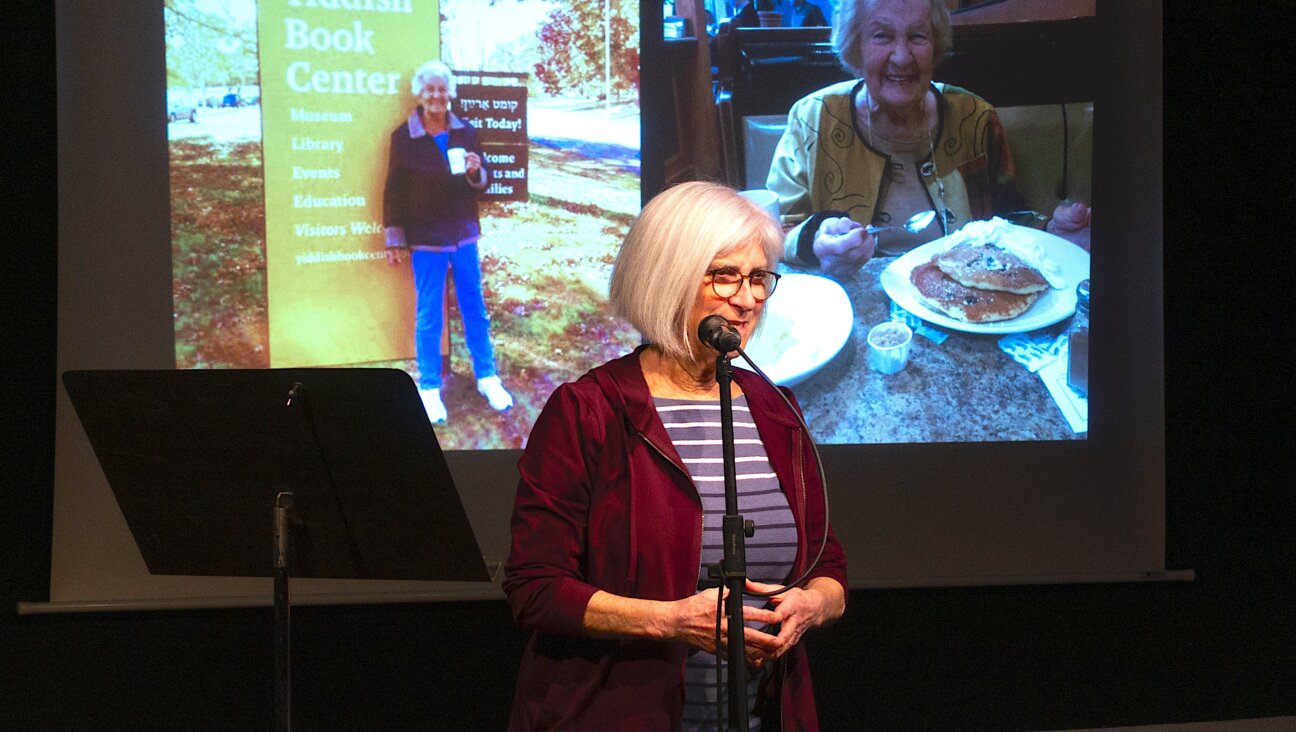
Yiddish World Yiddish fans in Berlin launch a Yiddish open mic series
-

Fast Forward Cornell pro-Palestinian student leader opts to leave US, as Columbia ‘self-deportee’ makes her case to return
-
Shop the Forward Store
100% of profits support our journalism
Republish This Story
Please read before republishing
We’re happy to make this story available to republish for free, unless it originated with JTA, Haaretz or another publication (as indicated on the article) and as long as you follow our guidelines.
You must comply with the following:
- Credit the Forward
- Retain our pixel
- Preserve our canonical link in Google search
- Add a noindex tag in Google search
See our full guidelines for more information, and this guide for detail about canonical URLs.
To republish, copy the HTML by clicking on the yellow button to the right; it includes our tracking pixel, all paragraph styles and hyperlinks, the author byline and credit to the Forward. It does not include images; to avoid copyright violations, you must add them manually, following our guidelines. Please email us at [email protected], subject line “republish,” with any questions or to let us know what stories you’re picking up.








